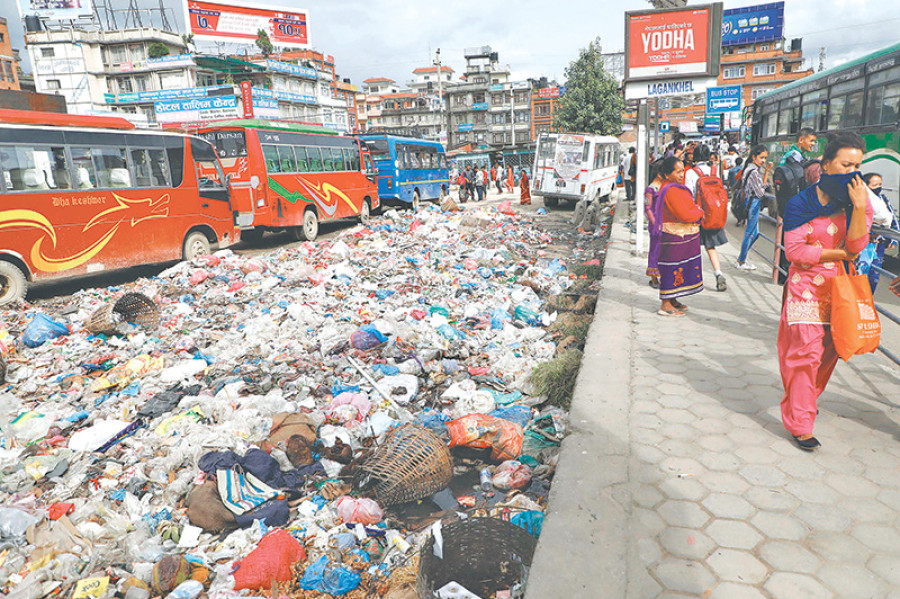Valley
SC writ seeks solution to city garbage issue
The Supreme Court (SC) has received a writ petition seeking effective and sustainable solution for garbage and other solid waste residents discard in the Kathmandu valley.
The Supreme Court (SC) has received a writ petition seeking effective and sustainable solution for garbage and other solid waste residents discard in the Kathmandu valley.
The petition filed by the advocate Padam Bahadur Shrestha seeks a mandamanus order from the top court directing the relevant authorities to manage the Valley’s garbage that remains a major recurring problem for the metropolis.
Monsoon season disrupted garbage collection in the Valley this year, as noted in the last few years. Residents
discarded garbage on the streets. Piles of waste accumulated in various parts of the city continue to spread an unbearable stink and pose a serious threat to public health.
“Waste collection has been disrupted under the pretext that Sisdole landfill site has reached its saturation point. It is government’s responsibility to manage another landfill site to avoid public health crisis,” said Shrestha.
The writ has made Ministry of Forest and Environment, Ministry of Health and Population, Office of Prime Minister and Council of Ministers, Department of Environment, Kathmandu Metropolitan City, Lalitpur Metropolitan City and Bhaktapur Municipality and other concerned government agencies as defendants.
Besides the regular collection of waste, the writ has also urge the SC to order local levels to strictly implement segregation of waste at the source, and promote recycling and reuse.
“The existing law has a provision which requires local levels to segregate waste as biodegradable and non-degradable in separate bins, and collect the segregated waste in different vehicles. This practice is not implemented by local levels,” said Shrestha, who added that if local levels abided by the Solid Waste Management Act (2011), it could solve all problems.
According to the petition, the local levels should immediately enforce the provision of fixing different rates
for waste collection depending upon the amount and nature of the waste.
Various studies show nearly 75 percent of the waste produced in the valley is biodegradable and, if segregated at source, it could be converted into compost. However, residents of the Valley do not practice segregation of waste.
According to environmentalist Bhushan Tuladhar, segregation of waste can be beneficial environmentally and economically while the concept of managing waste via dumping sites is not a sustainable approach.




 11.23°C Kathmandu
11.23°C Kathmandu












